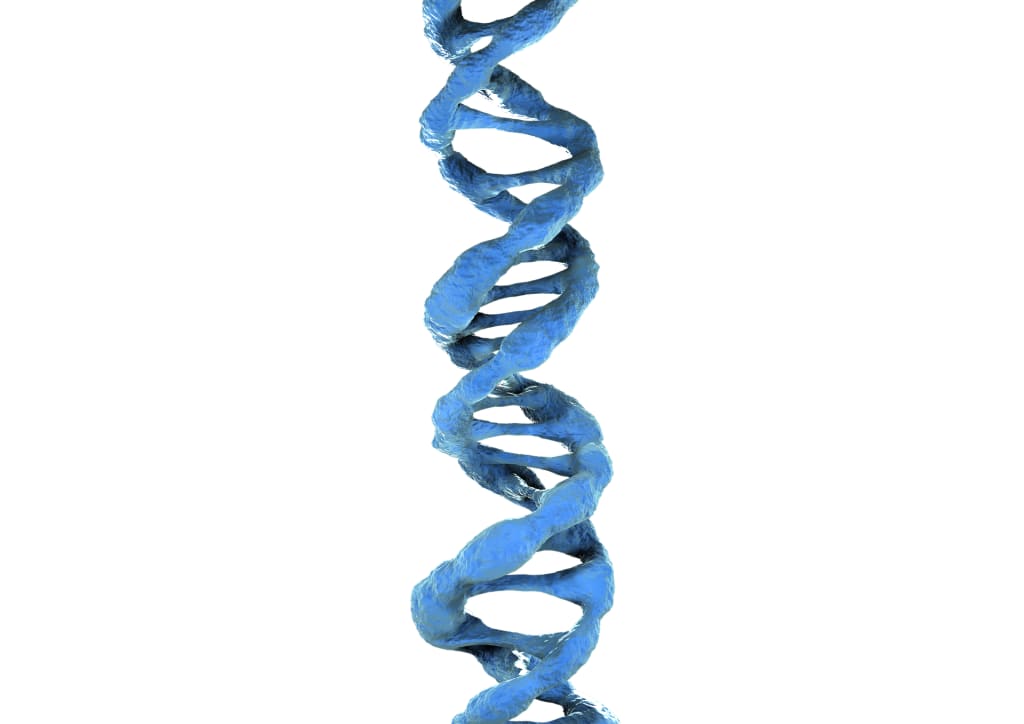DNA Determinism Continues to Dominate Public Discourse
The Most Popular, Least Critically Examined Philosophical Position in the Developed Western World

Philosophy of DNA Determinism
It is almost hard to believe how conditioned we have become to accept the philosophy of DNA determinism (and it is a philosophy, it is not a science, though it is supposedly based on science). The surprise and shock that is expressed at what should be a common sense and more than obvious conclusion (environmental factors are just as, or more important, then gene sequence in complex disease outcome) is astounding. I have written about this issue on occasion before but the topic deserves a wider audience.
I think ultimately it goes back to the fact that people have an aversion (a fear even) of the complex, the hard to understand, the fuzzy, the unknown (with apologies to H.P. Lovecraft — the non virulent racist version, no apologies for the other one). Environmental factors role in any given disease process are, more often then not, all of those things. Meanwhile DNA sequence data is easy to obtain, well understood, crystal clear, and its role almost entirely or entirely known for many diseases, with more becoming known everyday about its role in others. In addition to its simplicity genetics has the great advantage of being fixed and unchangeable. I can’t change my DNA therefore anything that is the direct result of it is “not my fault.” DNA is rapidly becoming the most popular excuse the medical community and the everyday person has for laziness or simply refusing to change. Government and industry particularly love DNA because it gets them off the hook for all manner of potentially disease causing activities. Why worry about pollution or mercury or any other environmental toxin, pollutant, or food contaminant when it is really DNA that determines your health outcomes? The med/pharm/drug industry loves DNA determinism because it is eminently treatable with drugs or or other costly medical interventions while “treating” environmental factors is free for everyone or something the government will pay for (but not to them). The medical research community love DNA determinism because studies can be easily designed, data easily obtained or collected, and paper after paper published on the role of DNA in any given disease. After all who wants to have so sign up patients, put them in some exercise program they are not going to follow anyway, or try and make them alter their diet, for a study that is going to need to last ten years to collect a bunch of data that might be useless in the end, when I can hop on any number of freely available DNA sequence databases, download a shit ton of sequence data overnight, run it through my bioinformatics and stats packages, and publish a paper next week? I will take option 2 every time if I am a researcher (which I am) because I want to keep my job. Also, could the sentence prior to the last one have been any longer? Damn.
With everything DNA determinism has going for it, it’s no wonder it has become one of the most popular, uncritically accepted (non religious), philosophical positions the world has ever seen. In the developed western world that may already be the case, at least among the non technical/scientific public. A disturbingly large portion of the scientifically literate and highly educated fall in to this group as well.
The easiest explanation is not the same as the simplest explanation, and neither are the same as the correct explanation. Sometimes, most times in fact, explanations are complex and difficult and fuzzy. Sucks, but such is the nature of life.
The Relationship Between Technology and DNA Determinism
Maybe at one time it was primarily sensationalism and the desire for page views that motivated these “DNA determines this or that” articles, but I think now there is a deeper underlying issue that is driving their resurgence. It is no coincidence that the popularization of AI and machine learning are correlated precisely with the increase in DNA determinism in the popular press. Despite being non-existent currently and possibly ever, the idea of artificial intelligence, and the logically impossible logical contradiction machine learning have convinced the laymen that people are really nothing more than sophisticated biological computers. Thus it is no far stretch to infer that our DNA is the “code” that fully determines every aspect of our being from how we behave, to how we look, to what diseases we may or may not get, to how “intelligent” and “successful” we will be. Just like computer code, our DNA code is fully determinative of everything that we are or will ever be. The fact that this is utter and complete nonsense (like machines that learn and artificial intelligence) is never considered. If one studies the literature it appears more and more that the opposite is actually the case, DNA sequence is far less consequential then once thought, and by default it is environmental (or other unknown) factors that must be far more important in determining virtually every major life outcome from disease propensity to “success” to “happiness.”
As a micro/molecular biologist I was once a hard core DNA determinist. The more I learned about the role of DNA and the molecular basis of life the more it seemed it seemed obvious that DNA sequence must be the primary source of everything that made us what we were.
As with many things in science and life that are accepted uncritically, the belief in the correctness of a given position is often inversely proportional to it’s actual correctness. Such is the case with DNA determinism.
The fact that we have learned and know so much about the role of DNA in life processes is yet another reason DNA determinism has become the default position among the lay public and many in the scientific community as well. It is so much easier to point to gene sequences as the “cause” of any particular attribute when these sequences are largely known or easily discovered, and their role (largely) understood. A gene sequence is a cold, hard, known fact. It can be determined exactly, put into databases, and compared to other known sequences. It can be analyzed and seen, it is eminently knowable even for the non scientist. It is much harder to to suggest environmental factors which are mostly unknown, often impossible to pinpoint or even describe exactly, and have complex interactions with each other. They are in a word, fuzzy. Who wants to be told they are overweight for reasons that are mostly unknown or possibly unknowable or that “it’s complicated.” It is so much easier to be told you are overweight because of your genes, given the name of the gene(s) believed to be responsible, and maybe even shown the exact sequence(s) and how they differ from those who are not overweight. Because an explanation is easy and known and the “simplest” does not make it the correct one despite what Occam’s razor might suggest.
DNA Determinism Undermines Our Understanding of Just About Everything
Study proves what everyone should have known already, but sadly did not. File this one under duh. To think that a phenotype* as complex as homosexuality could possibly be under the control of just one gene is absolute madness and the height of ridiculousness. The fact that this was commonly believed to be true highlights the continued dominance of DNA determinism in public discourse. The worst thing about the DNA determinists is that they are typically the most ignorant of the complexities of molecular biology, and the tendency to oversimplification runs rampant. Environmental inputs are ignored or actively downplayed and DNA sequences (genes) are given total and ultimate power over our lives and our destinies. Usually the endpoint of this is Gene X causes trait/feature/characteristic/attribute Y. Therefore if you have Gene X you will be Y. (Of course, depending on who the person is at this point there may be a plug for treatment Z, which is the only possible hope you might have to beat back your predetermined fate). There are so many things wrong with a statement like that I don’t even know where to begin. What a waste of resources that an actual study had to be conducted to “prove” this most obvious of things.
*Interesting question. Is a behavioral characteristic like homosexuality (in humans) a phenotype? One could argue it is not as phenotypes are typically considered to be observable and I would argue homosexuality (in humans) is not observable, at least not in a simple, direct observational, way. In fact you could argue it is not observable at all and can only ultimately be determined through psychological i.e. direct questioning of the person, means. Even observing a given person engaged in a homosexual act is not enough as non homosexuals have and do engage in homosexual acts. That it is a phenotype in non human animals is an easier argument to make though still full of slippery questions such as how many homosexual acts does it take a given animal before it is fully, truly homosexual? Must it only ever have sexual relations with its own sex or can one or two or three, etc. deviations from this be permitted? And of course many argue that homosexuality is a human only phenomenon though this seems hard to believe given the evidence to the contrary.
About the Creator
Everyday Junglist
Practicing mage of the natural sciences (Ph.D. micro/mol bio), Thought middle manager, Everyday Junglist, Boulderer, Cat lover, No tie shoelace user, Humorist, Argan oil aficionado. Occasional LinkedIn & Facebook user
Enjoyed the story? Support the Creator.
Subscribe for free to receive all their stories in your feed. You could also pledge your support or give them a one-off tip, letting them know you appreciate their work.






Comments
There are no comments for this story
Be the first to respond and start the conversation.